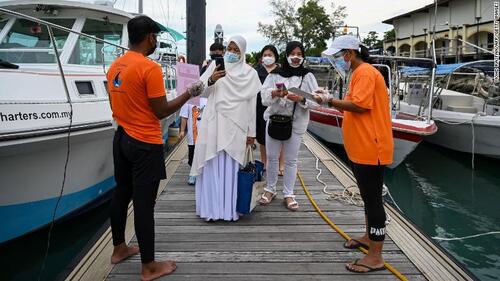Southeast Asian Countries Rush to Re-Open Tourism Despite Undesirable Conditions

Southeast Asian Countries Rush to Re-Open Tourism Despite Undesirable Conditions
With the emergence of the Delta variant, government officials have begun to mass test high-risk groups in Ho Chi Minh City to contain the spread that is believed to have been brought over by a Christian mission that has resulted in over 125 positive cases alone. Vietnam has registered just over 7,000 infections and 47 deaths (as of June 1st, 2020). The new policy plans to test up to 100,000 people daily and has closed shops and restaurants while suspending religious activities. Events have a hard limit of 10 attendants, with considerations to lower this threshold to only 5 people. These efforts are coupled with the preexisting policies that were implemented at the beginning of the pandemic, which Vietnam navigated relatively well (compared to the situation in other countries).
However, it was recently announced that several parts of Southeast Asia, such as Malaysia, Thailand, and Vietnam, have begun to move away from their zero-Covid policies to revive their dying economies. Under great economic pressure from tourism sectors, these countries are looking to reopen resort destinations to foreign travelers in the coming months, despite reporting 15,000 – 20,000 cases per day and having vaccination rates as low as 7% (in Vietnam). Although some areas having comparable vaccination rates to Western countries (>56% in Malaysia), many countries in Southeast Asia have been reliant on Chinese-made vaccines that generally have a lower efficacy than Western vaccines. Compared to the 90% effectiveness that we’re used to seeing from Pfizer or Moderna vaccines, Sinovac and Sinopharm only have a 50% and 79% efficacy rate, respectively.
Despite the efforts made to contain the spread and simultaneously revive their economies, I think it’s haphazard to reopen tourism sites when cases are rising faster than vaccinations are. The mistake lies in believing that the success seen in Malaysia and Singapore, which have relatively higher rates of vaccinations, can easily be replicated in Vietnam and Thailand, which have lower vaccination rates and higher infection rates. Whether it’s the cultural mindset, the vaccines provided by the government/made available, etc., these countries should re-evaluate if they have the capabilities to control the situation before enforcing policies to mimic the West.
Another article for background: https://www.bbc.com/news/world-asia-57303306